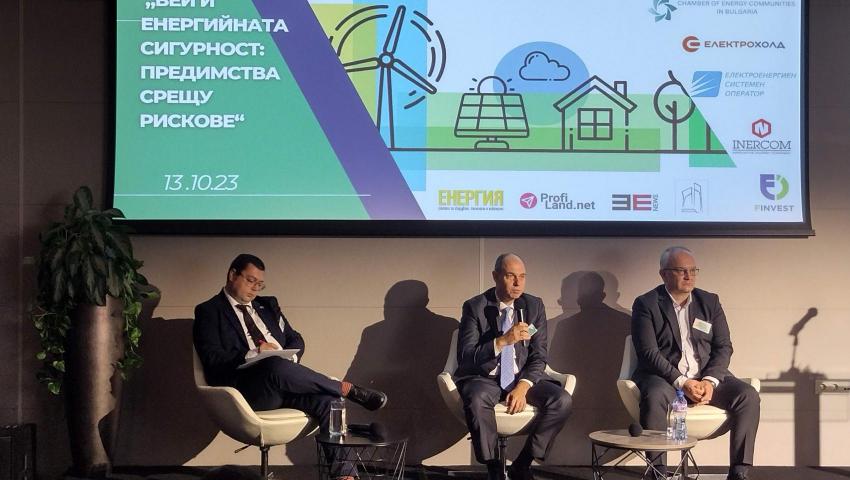ESO: More investment is needed to keep the energy system stable

George Velev
In the coming years, the challenge for the Electricity System Operator will be to maintain the stability of the energy system. The reason for this is rooted in the decreasing number of conventional generator systems and the increasing number of intermittent energy sources. This became clear from the words of Angelin Tsachev, executive director of the Electricity System Operator, who also participated in the conference.
Although our country has a very well-developed and balanced transmission network, the rapid pace of implementation of more and more RES capacities is a huge challenge. In the last few years, ESO has been trying to make a serious plan for the development of the network in relation to the wishes of RES investors. With the recent changes in Renewable Energy Law (REL), these problems will decrease from the point of view of network development planning.
The other serious challenge is the balancing of the electricity system, explained Tsachev. According to him, RES sources are of a non-permanent nature of electricity production, and this creates problems for additional services and the preservation of frequency regulation. It is for this reason that the state must encourage investments in storage systems and in network modernization, Tsachev was categorical.
There is also another challenge to the development of RES, and that is the negative prices. This phenomenon will deepen more and more with the years to come. And if we do not find an option for this energy to reach consumers, to be transformed into another energy carrier, then this will repel investments in new renewable energy plants. This carrier for the future could be the production of hydrogen.
At the same time, it is important to ensure that RES energy can reach a wide range of consumers on the European continent. It is necessary to provide RES corridors for energy transmission, Tsachev also explained.
EWRC: The production of RES energy will triple by 2030 let's get ready
The changes to the Law on Energy from Renewable Sources, which will be published today in the State Gazette, will significantly simplify the administrative procedures for the construction of RES installations. They will also shorten the deadlines for project implementation. This was stated by Ivan Ivanov, chairman of the Commission for Energy and Water Regulation (EWRC) during the conference "RES and energy security: advantages versus risks", organized by the Bulgarian Energy and Mining Forum (BEMF). Ivanov added that the range of categories of agricultural land on which the construction of RES installations is allowed is being expanded, including lands in the 5th, 6th and 7th categories. The procedure for connecting new capacities during reorganization and expansion of the power grid is optimized.
However, serious reforms will come from Europe, Ivanov explained, referring to the changes in the electricity markets. The founding documents of the electricity market reform in the EU are to be adopted by the middle of 2024, in the mandate of the current European Commission. They will operate in the coming years, but an essential element of the reform is to triple the production of energy from renewable sources by 2030.
In addition, wide access to energy from RES sources at affordable prices should be ensured. The other goal is to optimize consumption from RES sources through the widespread introduction of smart grids and electricity meters. Long-term contracts will play an important role in the future in guaranteeing revenues for RES producers and stable prices for businesses and households.
With the changes, it is envisaged that, in the event of a crisis, states will be able to set regulated energy prices for households and small and medium-sized enterprises, Ivanov also recalled. According to him, in order to achieve the goal of the European Green Deal for the decarbonization of the economy by 2050, it is necessary that investments in RES should exceed 4 times the financial flows that are currently going to fossil fuels.
It is expected that the current decade will be key in the direction of investments and the energy transition, recalled the head of EWRC.
